














































MIKVAH

LARGE
UPGRADED ROOMS AVAILABLE
CHOL HAMOED ENTERTAINMENT
2 OR 5 BEDROOM COTTAGES WITH SUKKAH ON THE PORCH










TRUSTED
Harnessing
CHAMPIONING EXCELLENCE

















































MIKVAH

LARGE
UPGRADED ROOMS AVAILABLE
CHOL HAMOED ENTERTAINMENT
2 OR 5 BEDROOM COTTAGES WITH SUKKAH ON THE PORCH










TRUSTED
Harnessing
CHAMPIONING EXCELLENCE

In this week’s Vibes of Humor, Chashie Stern gives grandchildren some pointers on ways to connect with their grandparents.
The article is obviously tongue in cheek and the tone is witty, but reading it definitely reminded me of some truths.
I’ll zoom in on the recipe tip.
Chashie recommends that grandchildren ask their grandparents for recipes as a way to connect—and to make their Zeidy and Bubby feel like world renowned chefs.
Well….
I always thought that my Zeida and Bubba were world renowned chefs.
Disclaimer: I grew up in a multi-story building and was in and out of my grandparents’ home all day long. Their food and cooking were the mainstays of my diet.
But all of that is just backstory. All grandchildren have their unique way of connecting with their grandparents and their individual circumstances—those were simply mine.
After I got married though, I suddenly began to see and recognize things in my grandparents’ home that I’d never seen or recognized before.
Just how did Bubba get her challah so perfect every week? How did Zeida make his rotisserie chicken in his regular oven?
I had my Zeida’s and Bubba’s home number on speed dial in my phone and I dialed the number frequently during my shanah rishonah year (or years… the stage definitely seemed to go on for quite a while). I easily detected smiles in my grandparent’s voices every time that I called.
Especially when I asked for recipes.
They delivered those so easily and with so much pride.
Zeida had his tips to share; Bubba had hers. (Did you know that the way to get homemade gefilte fish to hold up is by mixing the eggs in really quickly — keeping your hand moving the whole time?)
Today, looking back, I can see that I didn’t write down enough of the tips that I was given.
I thought I’d remember them, but I didn’t. Things that seemed obvious the day or two after I heard them haven’t withstood the test of time.
Sadly, both my Zeida and Bubba have passed on, and things that I really would’ve preferred to know more about — information about key ideas beyond the kitchen —is no longer accessible to me.
As the saying goes, “hindsight is twentytwenty.” I hope you’ll forgive me, dear readers, for sharing my hindsight with you. (Because, obviously, while living in the moment things may look and feel different.)
Apology aside, connecting with our grandparents (and parents) is our foundation as Yidden and asking them to share their recipes, stories, and ideas is a terrific way of doing so.
Please, please, please write down or record as much of your grandparents’ anecdotes as possible (storing it all in an easily retrievable location). Picking a theme and sticking to it is sure to lend a special flavor — and incentive — to your note taking. Themes can be as banal as recipes, or they can be somewhat deeper, like a grandparent’s move from yenem velt, encounters with gedolim from yesteryear, or exciting historical events that they lived through.
As I write these lines, we are living through our own historical times. 6,000 missiles were aimed toward Eretz Yisroel and there were no casualties. The mitzvah of kibbud av v’eim, which includes honoring our grandparents, connects us to our Avos — to Avraham, Yitzchak and Yaakov whom Eretz Yisroel was promised to. Zechus Avos is clearly protecting us. Let’s do our part to strengthen the links of our chain. Make it a great week!




















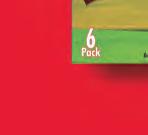















































Next Deadline: Volume 1 / Issue 47
Cover + Special Placement: Monday at 3:00PM
Premium
Tuesday at 12:00PM
Classifieds: Monday at 4:00PM
Disclaimer:


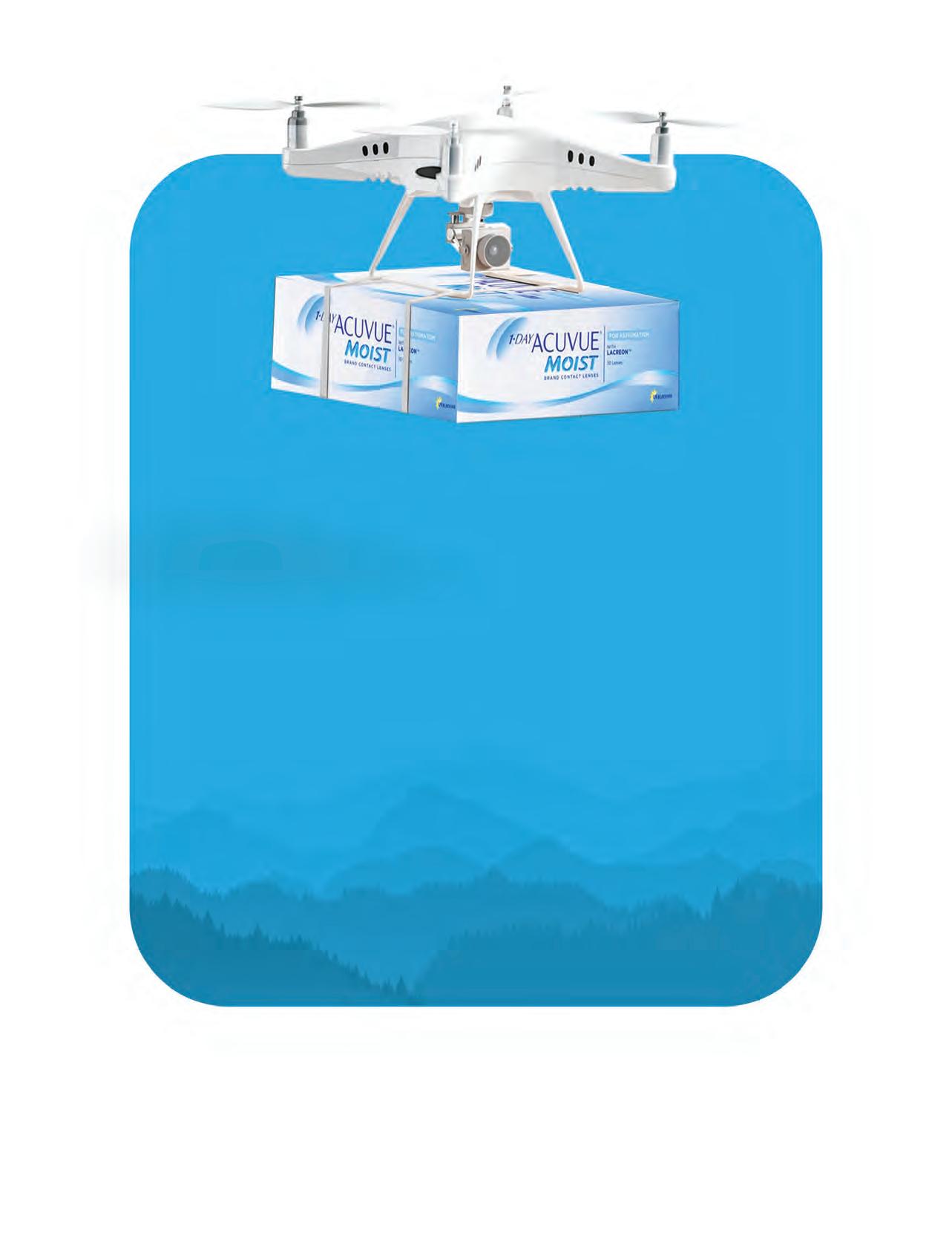










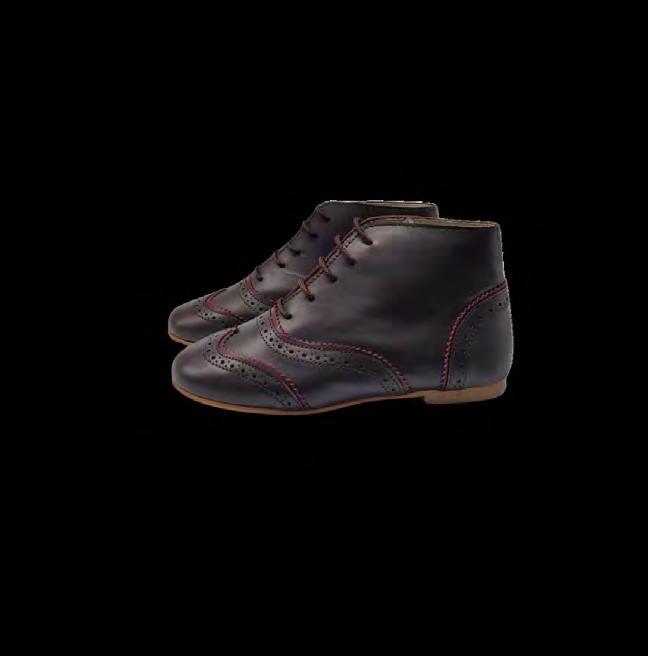
















































































































Licensed and insured
No hidden fees
10 Mimimum required for installation


VAADHARABANJM
Rabbi Shlomo G1ss1nger )"YT
Rabbi Simcha Bun1m Cohen
Rabbi Chaim Mayer Roth
Rabbi Avrohom Spitzer

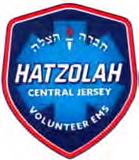
212 2nd Street #302
Lakewood NJ 08701
Office 732 363 5600
Fax 732 806 8731
HATZOLAHCJ.ORG
August26,2024
An Open Letter to the Communities of Lakewood, Jackson, Toms River, Howell,Manchester,andBrick.
DearCommunityMembers,
It has come to our attention that an organization, previously condemned by the Rabbonim of all our towns for their unsanctioned and unnecessary services, has begun aggressively promoting and advertising their hotline number using various gimmicks. Alarmingly, their latest tactics are designed to attract the attention of our children, using them to bring their stickers, magnets, and other paraphernaliaintoourhomes.
Moreover, this organization has intentionally chosen to market itself in a way that closely mimics Hatzolah of Central Jersey, creating a significant risk of confusion. In a moment of crisis, this confusion could result in a potentially critical delay in obtaining the appropriate medical response, with potentially devastating consequences. Their resources, experience, and medical oversight are unknown to us. We thereby find the need to caution you on calling them for any emergency. Hatzolah of Central Jersey is in no way affiliated with this organization,andcallingthemwillnotresultinaHatzolahresponse.
We strongly urge you to ensure that none of their magnets or paraphernalia are left in your homes. In an emergency situation, mistakenly calling their number insteadofHatzolahcouldleadtoseriousdelaysincare,endangeringlives.
The only way to guarantee a fast, professional, and experienced Hatzolah response with their ability to provide advanced life support services is by callingtheir24x7emergencyhotline732-370-3600or732-888-3000.
Withgraveconcern,





Farming has been an extremely dominant part of the Jews' everyday life for thousands of years. The majority of Jews, for a large part of history, had an agricultural job of some sort in order to sustain themselves. Hence, the Torah designed a very intricate set of agricultural laws, which ensured that the individuals who could not sustain themselves were not left hungry. These very elaborate sets of laws were put in place, including terumah (tithe given to the kohanim), ma’aser rishon (tithe given to the levi'im), ma’aser ani (tithe given to the poor), leket (fallen crop that is to be left for the poor), shikcha (forgotten crop that is to be left for the poor), pei'ah (a corner of one’s field that is to be left for the poor), and shmittah and yovel (in which land is left unworked every seventh and fiftieth year, and its produce that grows naturally at that time is left for all to take). The purpose of all of these laws is clear; to maintain a society in which all are fed, regardless of one’s economic class.
The odd one out is ma’aser sheni, which is seemingly unrelated to the purpose of helping the poor. On years one, two, four, five, and seven of the seven-year shmittah cycle, we are instructed to take ten percent of our entire crop and bring it to Yerushalayim for us to consume within the city walls. We are to fill up our wagons and saddle our donkeys and bring our crops to Yerushalayim, and we cannot return home until we consume every last drop. If one’s crop amounts to a quantity that exceeds his ability to carry it hundreds of miles to Yerushalayim, he is commanded to sell the crop, and use the proceeds to buy food and drink within the city limits of Yerushalayim.
The question is obvious; what is the purpose of this? What exactly are we trying to accomplish by dragging hundreds of pounds of produce in tow, finding a bench somewhere, eating it, and promptly returning home? What exactly is the Torah trying to accomplish by this? It doesn’t seem to have any apparent spiritual aspect to it, and certainly doesn’t seem to be benefiting society in any way. There is no special blessing we say or song we chant as we carry out this process. So why does the Torah command us to do it?
The explanation that the Torah offers doesn’t seem to solve our problem. The Torah (Devarim 14, 23) explains that the reason we bring ma’aser sheni is l'maan tilmad liyira es Hashem – we are to bring our food and eat it in
Hillel Eisenberg
Yerushalayim in order to learn to fear Hashem. How exactly does schlepping three crates of eggplants to Yerushalayim and eating them on a street corner cultivate yiras shamayim?
The Chinuch (mitzvah 360) offers a powerful explanation. He explains that the Torah is commanding us all to take time out of our busy lives and spend a day or two in the holy city of Yerushalayim. The point is for us to be inspired and bring that inspiration back to our homeland far away, injecting our daily lives with holiness.
But it still seems baffling. Every member of the Jewish people traveled to the Bais Hamikdash thrice yearly on Pesach, Shavuos and Succos; so what does this add? Haven’t we been there already? Doesn’t coming a fourth time run the risk of dulling the inspiration we received when we came the previous three times?
The answer is that the Torah wants us to come and see Yerushalayim when life is regular. When there isn’t a grandiose Pesach or Succos permeating the air, and there isn’t the heightened buzz of Shavuos all around. When there aren’t throngs of people and choirs and sacrifices. The Torah wants us to go and see the streets of Yerushalayim on a Tuesday afternoon when there's nothing going on. The Torah wants us to observe that holy shopkeeper in the shuk and how scrupulous he is with the way he talks. The Torah wants us to watch the baker and see how he uses every spare moment he has to sing the songs of Hashem's Torah. Hashem wants us to catch a glimpse of the Torah giants that walk the streets of the city shrouded in holiness, even when nobody’s observing.
The Torah wants us to come to Yerushalayim specifically when it is not a holiday, so we can see what is expected of us on a normal day; meaning, to see what the Torah defines as normal. To see what holy people do and don’t do on a daily basis. Not what they do while in the Bais Hamikdash on Shmini Atzeres or in shul on Shavuos night. This time the focus is on what they do on a Wednesday morning while eating breakfast.
The Torah wants us to bottle up those sights and sounds of the streets of Yerushalayim and bring them back to wherever we call home, so we can inculcate them in our lives. To use our refreshed definition of “normal” and apply it to ourselves. We return with broadened vistas in what we are capable of achieving spiritually,
a heightened sensitivity of what we allow in our homes, and perhaps more importantly, what we don’t.
While this is a transformational idea, the problem is that this solution runs into a wall both literally and figuratively. The Gemara (Zevachim 119b) states that in order to eat ma’aser sheni, one needs to be within the walls of the city containing either the Bais Hamikdash or the Mishkan (Tabernacle). There was, however, an exception to the rule. There was one place where the Mishkan had once stood, where one was able to fulfill his obligation of ma’aser sheni, as long as he was able to see the city even when standing far beyond its walls. That city was the city of Shiloh. But first, a brief history.
After the Jews entered the land of Eretz Yisrael, they erected the Mishkan in Gilgal, a city near the city of Yericho. It stood there for fourteen years while the land was conquered and divided. The Mishkan was then moved to Shiloh, where it remained for 369 years. During a war with the Plishtim, the Aron was captured. Upon hearing this tragic news, the Kohen Gadol of the time, Eli, fell backward from his chair and died. It was at that time that the Mishkan in Shiloh was destroyed. Afterwards, the Mishkan was rebuilt in the city of Nov, where it stayed until King Shaul killed all the Kohanim living there, upon which it was moved to the city of Givon. It stood in Nov and Givon for 57 years, collectively. It was then that Shlomo Hamelech finally built the first Bais Hamikdash in Yerushalayim.
In all of the Mishkan’s many locations, the law regarding ma’aser sheni remained the same; one must bring a tenth of his produce to within the walls of the city where the Mishkan was currently situated, and eat it there.
The exception was Shiloh. As long as you could see Shiloh, you were able to eat ma’aser sheni. Perched on top of a hill twenty miles away was good enough. No need to be any closer.
The question is, why? If the entire point of the law was for us to absorb the everyday sanctity and piousness of the city, how are we accomplishing that while eating our peppers on top of a mountain, relying on binoculars just to make out the Shiloh skyline? How are we to absorb the holiness the city exudes from so far away?
The answer can be found in the reason the Gemara gives as to why the Mishkan was in
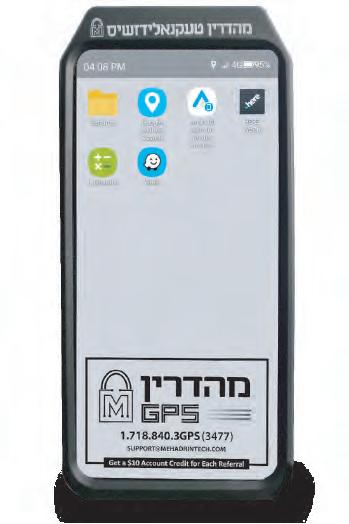




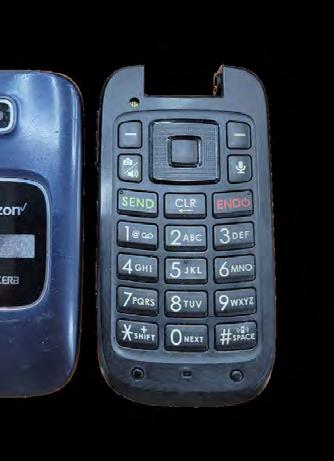



Shiloh in the first place. It was there in the zechus of Yosef Hatzaddik. The Gemara says that because of the herculean strength Yosef displayed while withstanding the immodesty and immorality of Egypt, he merited having the Mishkan rest in his portion of land for a whopping 369 years. So holy was this Yosefinspired city, that those who merely saw it from afar were viewed as being halachically transplanted inside of it. Just laying one's eyes on it from afar had the same effect as being present in its streets. Why was this so?
The Ben Ish Chai (Ben Yehoyada on that Gemara) explains that Yosef, with his steadfast commitment to holiness, set the bar for the rest of Jewish history, showing us the spiritual heights we are all able to attain even while entrenched in the mud of everyday life. Yosef introduced to the Jewish people a new normal. He introduced us to our ability to remain pure despite being engulfed in impurity. So intact was his holiness, so rock-solid was his grasp of sanctity, that the Medrash (Vayikra 33, 5) labels Yosef as the seminal protector of the Jewish people’s sacredness until this day.
Hence, continues the Ben Ish Chai, merely seeing the city of Shiloh, merely glancing at the Yosef-inspired Mishkan, even from afar, was so inspirational that there was no need to come closer. When we looked at the Mishkan in Shiloh, we were reminded of how Yosef injected an oasis of purity in the midst of a sea of contamination, and we became inspired to do the same. So awesome was Yosef’s holiness that merely seeing his Mishkan from miles away, close to 500 years after his death, electrified us and enabled us to find sparks of holiness in our souls, sparks that we were previously unaware were there.
When we took one look at that Mishkan, we were met with Yosef’s fireball of holiness. We remembered the young seventeen-year-old boy all alone in a foreign land. We remembered the youth who looked down as he walked through the dark streets of Rameses. We saw the lad who, no matter his circumstances, kept on smiling. We remembered Yosef who, despite unfathomable pressure to commit adulterous acts, let his soul shine bright. We remembered the teenager who, with unimaginable strength, ran away from sin like
Hillel Eisenberg
we would from the plague. We remembered it all and injected it into our homes. We were reminded of how holy our souls can be and of how much spiritual strength is stored in its vast recesses.
George Danzig was a graduate student in advanced mathematics in the University of California, Berkeley. He was a smart student and loved math but didn’t think he was anything out of the ordinary. One day, he came a few minutes late to his math class. He surreptitiously sat down in his seat and quickly copied the two homework problems written on the blackboard before catching up to what the professor was teaching. Later that evening, he sat down with a glass of tea to work on the two homework problems. Although he found them quite difficult, he was determined to finish them, hoping not to make an even worse impression after coming late to class earlier that day. After spending several hours on them, he was finally able to solve the problems, and satisfied, he went to sleep. The next day, when he handed the paper to his math teacher, the teacher looked up at him with surprise.
“What is this?” he asked George.
“It’s the homework from yesterday,” George replied.
“I didn’t give any homework yesterday,” the professor said with increased energy in his voice.
“So what were those two problems on the blackboard?” George asked, as the rest of the class looked on.
The teacher, with his heart pumping furiously, grabbed the paper from George’s hand and read it from top to bottom. After staring at the paper in utter disbelief, scanning it over and over and over again, the professor jumped out of his seat and excitedly screamed:
“George, those were two unsolvable math problems presented by ancient math scholars hundreds of years ago that haven't ever been solved in the history of math! And you just solved them!!
“George, you have just solved a problem that
the smartest men in history were baffled by! I can’t believe it!”
George Danzig spent the first 22 years of his life completely unaware that he had in him the ability to solve math problems that have stumped every mathematician in world history. The difference between him and the rest of them was that he didn’t hear the professor tell the class that these problems were unsolvable. He didn’t hear the professor say it was too hard. All he saw were two problems that needed to be solved, and he found the wisdom buried deep within his brain to solve them.
Each and every one of us have unimaginable spiritual strengths buried deep within our souls. Sometimes we forget that. Sometimes we think that our souls only come alive on days like Simchas Torah and Yom Kippur, while the rest of the year gets relegated to spiritual mediocrity. We need to remember Yosef and the strength he showed us that we all have. The ability to take the streets of Yerushalayim and the sights of Shiloh and implant it wherever we find ourselves. We need to take a day off from our busy lives and just sit and observe holy people going about their life. We need to be reminded that our souls are far stronger than what the peanut gallery says they are.
Parshas Re’eh is always around Elul time. Elul is a time when we reenergize ourselves, a time when we rethink ourselves, a time when we reexamine our capabilities. It’s a time when we ask ourselves Judaism’s most important question: why be spiritually good, when we can be spiritually great?
Hillel Eisenberg, originally from Rochester NY, teaches courses on the fundamentals of Judaism at Princeton University as well as in Torah Links Yeshiva in Lakewood NJ. He is the author of the newly published book THE PARSHAH ON FIRE as well as the host of a podcast with the same name. His dynamic and passionate style of teaching the joy of Judaism has made him a sought-after teacher and lecturer throughout the United States. Feel free to reach out to Hillel by email Hilleleisenberg613@gmail.com or phone 585414-9729.


In the winter of 1872, there were many cases of women dying in childbirth in Sadigura. Reb Avrohom Yaakov Friedman was the (first) rebbe of Sadigura at the time.
One day, Reb Yeshayah, a loyal chassid of Reb Avrohom Yaakov’s approached and begged the rebbe to daven for his only daughter who was in labor and in grave danger.
The rebbe pondered for a moment, then said, “I can’t help you, even if I scream and cry and daven. But my father in law, the Beis Aharon (Reb Aharon II of Karlin) is in town now. Go to him. Perhaps he can assist you.”
Reb Yeshayah and his wife went to the Beis Aharon. They begged for his help, stating that their only daughter was in great peril.
Their heartfelt plea made an impression on the Beis Aharon. He instructed everyone to leave his room and then he closed the door. Once alone, he lit his pipe and, face alight with concentration, he paced back and forth.
Meanwhile, Reb Yeshayah waited in the hallway, desperate for good news.
Less than half an hour later, the Beis Aharon opened his door and called his meshamesh. “Tell Reb Yeshayah that the gezeirah that women die in childbirth is a substitute for a big kitrug against klal Yisrael,” he said.
“That huge gezeirah was switched for the smaller gezeirah of a certain number of women dying in childbirth. Because this matter pertains to the klal, I don’t have the ability to bring about a yeshuah. But through my tefillah I was po’el that
the baby will be born healthy and bring his family lots of nachas.”
Reb Yeshayah — who had hoped for a yeshuah for his daughter — was shocked by this message. He approached the Beis Aharon to check that this was indeed what he’d said.
“Yes,” the Beis Aharon said, “I did everything I could. In Shamayim my request for the baby was granted, but your daughter needs rachmei Shamayim — and Hashem is the baal harachamim.”
Reb Yeshayah did not lose his bearings. He said to himself, “If the Beis Aharon cannot help me, then my rebbe must save me.”
He returned to the Reb Avrohom Yaakov and recounted what the Beis Aharon had said.
“Listen,” Reb Avrohom Yaakov said. “Go to my son in law Reb Nachum. Tell him what happened, and he will grant you a yeshuah. My father in law wasn’t able to be mevatel the gezeirah, but sometimes the youth have more creativity than their elders.”
Reb Yeshayah went to Reb Nachum and told him the whole story.
Reb Nachum instructed his meshamesh to ask Reb Yehoshua of Skver, the chief baal tefillah and baal menagen of the chassidus, to come to him immediately.
“Please sing a good niggun that is emotionally stirring,” Reb Nachum told Reb Yehoshua.
Reb Yehoshua sang one song, then another, but Reb Nachum wasn’t satisfied. “Why don’t you sing the words of the braisah of Reb Yishmael’s thirteen

middos shehaTorah nidreshes bahem?” he suggested.
Reb Yehoshua began singing, and Reb Nachum listened intently. His eyes filled with tears, his right hand supported his head, and with his left hand, he tapped his snuff box in rhythm to the song.
When Reb Yehoshua reached the words “klal uprat, uklal iy atah dan elah k’ein haprat — regarding the rule of collective and individual, the collective is viewed as part of the individual,” a deep, long sigh escaped from Reb Nachum’s lips.
Reb Yehoshua repeated the words again and again until Reb Nachum instructed him to stop.
Reb Nachum said, “When we consider the collective and the individual, we prioritize the individual. This is because, with the principle of ‘klal uprat,’ we understand that ‘ein baklal elah mah shebeprat — the collective is essentially a collection of individual cases.’
“Therefore,” Reb Nachum continued, “I say: ‘Ribbono Shel Olam, please help this individual woman, and klal Yisroel — the collective — will also have a yeshuah!’”
Shortly thereafter, news arrived that Reb Yeshaya’s daughter had given birth safely and the incidents of women dying in childbirth ceased.
Reb Nachum’s yahrzeit is Chof Zayin Av.
(Adapted from Nifla’os HaTzaddikim by Reb Yaron Amit)

(November 20, 1816 – August 10, 1893)
Reb Naftali Zvi Yehudah Berlin, known by his acronym as the Netziv, was the rosh yeshivah of the Volozhin Yeshivah. Volozhin was founded by Reb Chaim Volozhiner, a talmid of the Vilna Gaon. Reb Chaim Volozhiner was succeeded as rosh yeshivah by his little-known son, Reb Itzele Volozhiner. The Netziv married Reb Itzele’s daughter.
Interestingly, the Netziv’s granddaughter married Reb Chaim Soloveitchik, also known as Reb Chaim Brisker (or, in certain circles, simply as ‘Reb Chaim’). He founded the revolutionary Brisker derech halimud, which made him a very popular maggid shiur in Volozhin under the Netziv’s tenure. After the Volozhin yeshivah closed, Reb Chaim returned to Brisk, where he succeeded his father as rav of Brisk. The “Brisker Rov” was Reb Chaim’s son, and the Roshei yeshivah of the modern-day Brisk yeshivos are his descendants.
Reb Shemaryahu Greinman recounted the following story about the Netziv:
The Netziv had a steadfast practice of avoiding consultations with doctors. However, there was a period when he wasn't feeling well, and his concerned family urged him to see a doctor, and after some persuasion and recognizing their genuine worry, the Netziv agreed.
The doctor arrived and conducted a thorough examination. After a long assessment, he identified the issue and wrote a prescription for medication from the town pharmacist.
After the doctor left, to everyone’s astonishment, the Netziv took the prescription and tore it up! His family was puzzled: if he’d had no intention of taking the medication, why did he agree to be examined? And if he agreed to be examined, why not take the medication?
Noticing their confusion and sensing their concern, the Netziv explained, “I usually avoid consulting doctors, because I know which part of my body is in pain, and I reflect on which mitzvos related to that body part I might have neglected. Then I do teshuvah, and the problem goes away.”
“But this time,” he continued, “I wasn’t feeling well, but I couldn't identify which part of my body was affected. I agreed to be examined by the doctor to determine where the problem lay. Now that he identified the issue, I don’t need his medication. Instead, I will return to my old method of healing —correcting the aveiros related to that limb.”
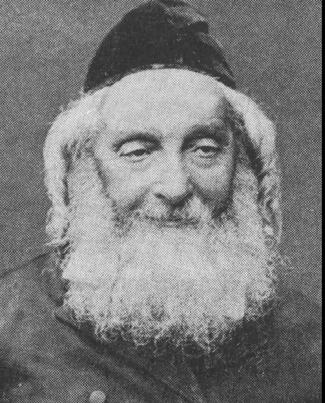
Reb Yaakov Berlin, the Netziv’s father, was a businessman who traveled extensively across the world. Whenever he went away, he came back with a present for his wife. On one trip, he selected exquisite crystal wine glasses, knowing his wife would adore them. She was thrilled with the gift and decided to save the crystal glasses for the special kiddush they held every Simchas Torah.

They had recently hired an orphan girl as a maid to help with household chores. Mrs. Berlin showed the girl the crystal glasses and warned her to be very careful with them.
On Simchas Torah, she reminded the maid once again to handle the glasses with utmost care. The maid, overwhelmed with anxiety about breaking the glasses, became exceedingly nervous. In her trepidation, she tripped, causing the precious glasses to crash to the floor and shatter into countless pieces. The shock was so intense that both Mrs. Berlin and the maid fainted on the spot. The joyous Simchas Torah suddenly felt like Tisha B’Av.
When Mrs. Berlin regained consciousness, she was very upset and decided to take the girl to a din torah.
The day of the din torah arrived. As Mrs. Berlin prepared to go she noticed that her husband was also putting on his coat.
Puzzled, she asked him, “Where are you going?”
“I’m going to the din torah,” he replied.
“I don’t need your help!” she said. “I’ll be fine by myself.”
To this, the Netziv’s father responded, “I’m not going for you! I’m going for the orphan girl. Who’s going to help her?
The Torah says, ‘kol almanah veyasom lo s’anun — You shall not afflict any widow or orphan.’ I must do everything I can to help this poor orphan girl.”
And so it was ***
The Netziv’s yahrzeit is Chof Zayin Av.
(Adapted from Nifla’os HaTzaddikim by Reb Yaron Amit; and as heard from Reb Avrohom M. Mendelson, TorahAnytime)

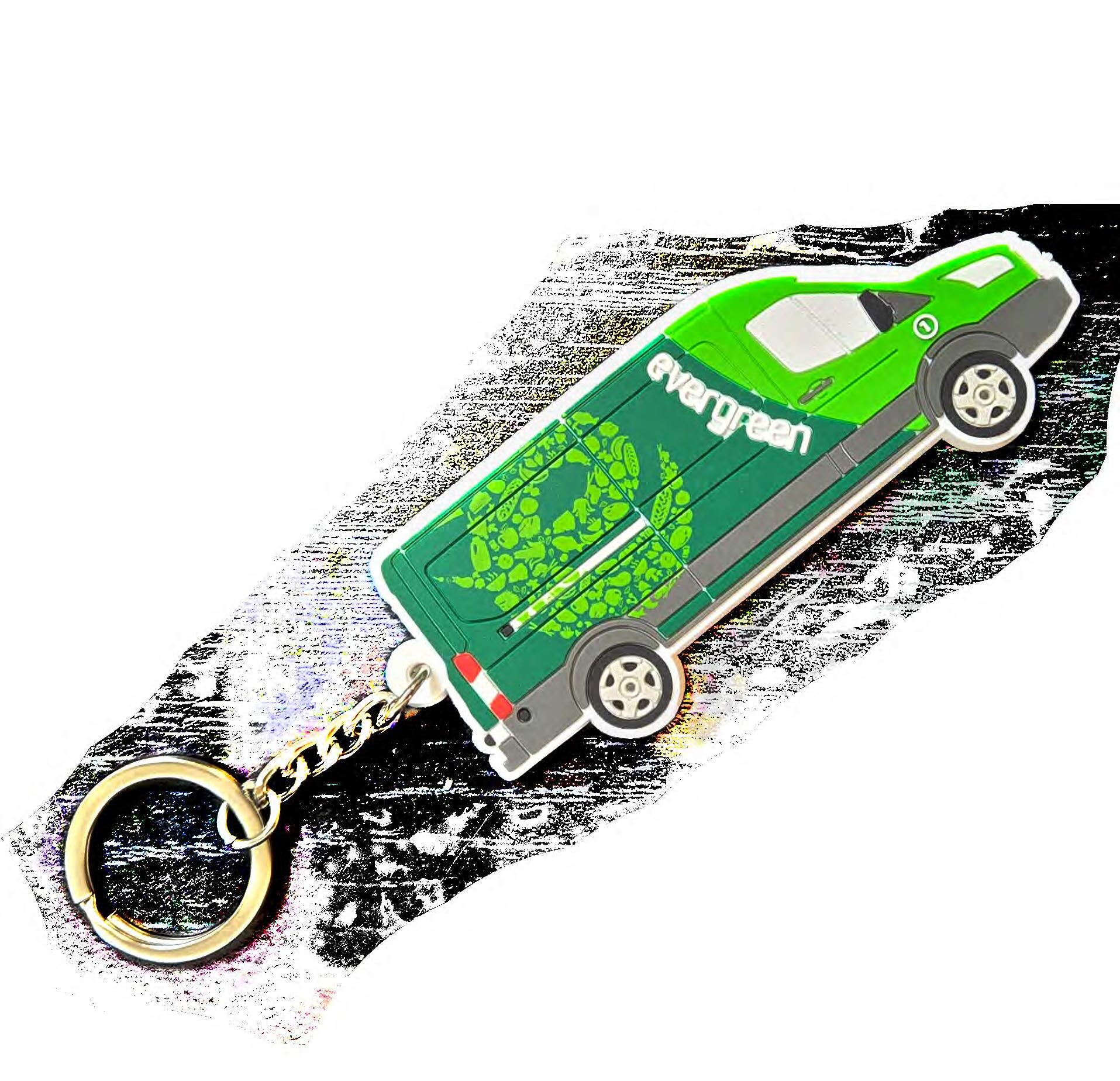
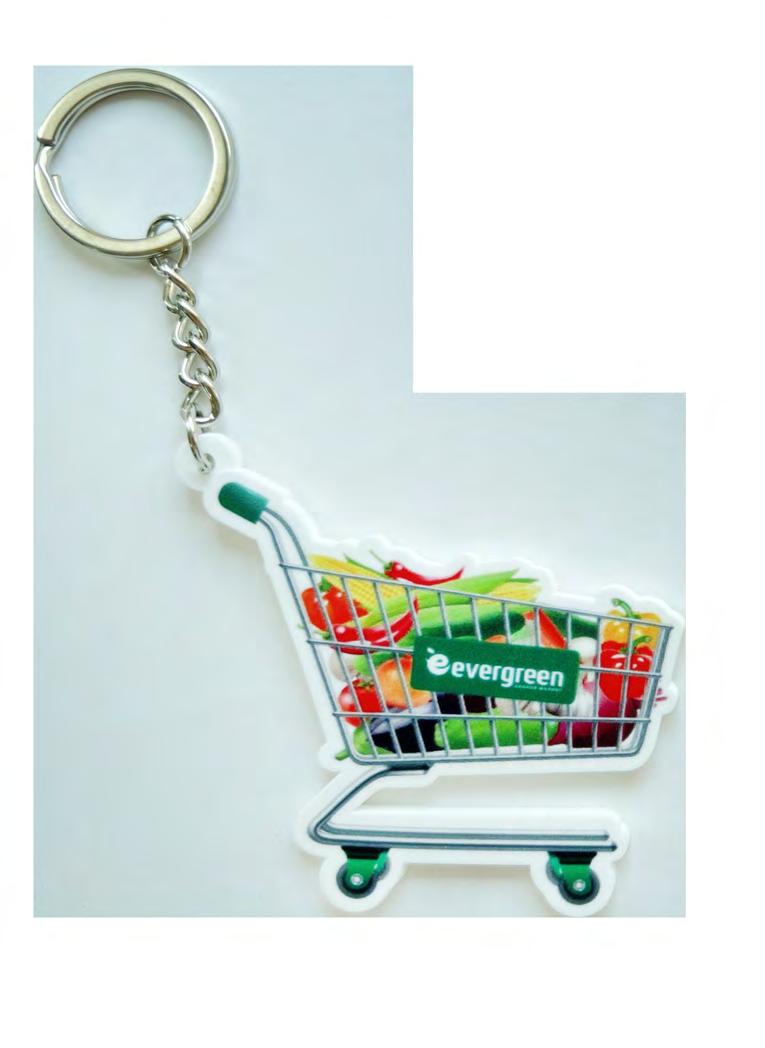
“So,” this brave hero said, looking at his young adult son and teenage daughter. “Now that we know the worst-case scenario, what do we do about it?”
Avi looked enigmatic. Like he had a lot he wasn’t telling us about. I guess that’s how heroes operate. You don’t often find heroes sitting around blabbing to all and sundry.
Rikki opened her mouth to answer, but Gadi got there first.
“What we do now, Nachman Feld,” he said, “is stop him. We stop Nakamura. In. His. Tracks.”
I put on a little boy’s voice and asked: “What? All by ourthelves?” (The lisp was intentional. Lithping is one of my many talents. Along with saving the world, and climbing on stepladders.)
“Well,” Gadi conceded, “we do have the entire Israeli Secret Service and army, navy and Airforce, at our disposal. Should we need them.” He paused. “Not to forget your extremely capable and brave son Avi, and your daughter Rikki. Who will be up for medals for gallantry and heroism when this is all over.”
I could already picture my own medal for heroism, pinned to my suit jacket. I would wear it on all occasions. I, Nachman Feld, had saved the world.
Well, helped save it, anyway. Hadn’t I climbed up a ladder in the enemy’s home and attached surveillance equipment to his lighting fixtures? How brave was that!
My thoughts ran amok somewhat. Could I wear the medal on Shabbos? Did pinning it to my suit constitute carrying it? What about the London Eruv? Would I damage my kids’ shidduch chances if I wore a medal



on Shabbos that meant I was carrying in the eruv?
“Look Dad,” Rikki said, ruining her hero status somewhat by talking. “As someone starting to hack into Nakamura’s computer, I think I have some idea as to what we do next.”
Gadi nodded vociferously. I decided to keep my mouth shut in the face of so much superior heroism.
“As I see it,” Rikki continued with authority. “We have two courses of action. We can either intercept whatever arms deal Nakamura is busy with right now, or we can realize our limitations and take only Nakamura down. We can’t save the entire world, single-handedly, sort of idea.”
Avi looked enigmatic, fiddling annoyingly with a loose button on his jacket sleeve. When his button finally succumbed and fell off into his hand, he looked up and said: “I agree, sis. Those are the two options. But the question is what we—who are sort of like a mini team operating independently— are meant to do right now.”
“We could just go in there and bash him over the head,” I offered helpfully.
Everyone looked at me, but no one looked impressed. I closed my mouth again.
“We can just keep monitoring what Nakamura is doing,” Rikki said slowly. “Because maybe his plans will, themselves, throw up an idea for a plan.”
Gadi and Avi nodded and smiled at that and then Avi leaned forward intently. “I think we need to consult with Xavier Roberts,” he said. He’s inserted himself into our lives, after all, to carry out this shakedown. So let’s use him. And his friend, Mr. Yamamoto.”
I’d nearly forgotten those two, lost as I was, in selfglorification after my stint up a stepladder. I had kept replaying that stint in my head, exaggerating the risks I could have encountered but didn’t, and bigging up the heroism aspect. But Mr. Yamamoto was very high up working alongside the Israelis. As was Xavier Roberts, my “guy next door” whom I’d been suspicious of and now exalted.
The meeting seemed to have drawn itself to a close without any of us declaring it over. Avi got up and when Avi Feld gets up, meetings are over. When I get up at meetings, usually no one even notices and things just carry on without me.
“I’ll go and see if I can dredge Roberts and Yamamoto up now.” Avi announced as he left the room.
Dredge them up like silt at the bottom of a barrel. What a rather strange expression to use for two people
we seemed to desperately need. But that was Avi, the Superhero talking. I hoped that didn’t make the rest of us all just silt, or sediment.
Rikki, Gadi and I stared at each other. A group looking anything less like a bunch of superheroes was hard to imagine.
To compound the anti-superhero image, the front door opened and closed as Debbie returned home, fresh from teaching a class. She had a particular clatter when she shut the door.
“Nachman? Avi? Rikki? Anyone?” She called out.
No one knew quite how to answer, wrapped as we were in our own worlds, so we remained silent.
The sound of the front closet opening. A bag being deposited on the floor.
We continued to look at each other in silence. After Avi’s exist and his promise to bring in the reinforcements there seemed very little to say.
The door to my study opened.
That’s right. Debbie always knew that to find me there, in my man cave, if I wasn’t immediately in view when she entered the house.
“Aah,” she said.
Aah just about summed things up was right.
Debbie looked around at us. I knew that she was astute enough to notice that this was not a normal threesome having a chinwag. Something significant was clearly going on and I could see from her expression that she realized it wasn’t something we wanted her becoming privy to. I had the decency to look sheepish. When I saw that no one else did, I prided myself on my expression.
“Tea, anyone?” Debbie said brightly into the silence.
Without waiting for an answer, she went into the kitchen and put the kettle on. We knew we were excluding her, but until we heard from Xavier Roberts and Mr. Yamamoto, we couldn’t really do anything else.
All at once the front door opened, and we heard Avi coming back.
He wasn’t alone. To be continued…



















Rifka Schoenfeld
Q: What’s the difference between remediation and acceleration? Which is better? What should I push for in my school?
A: First, I should define what educators mean when they say remediation and acceleration.
Remediation: Remediation is the process by which students fill in “the gaps” in their learning. It is “the correction of deficiencies.” The assumption is that children need to fill in those gaps in order to learn the new material. For example, if a student is determined to be weak in fourth grade math, he might be given remedial instruction in third grade math to go over those basic math skills. The problem with this method is that during this whole time that the student is attempting to learn third grade math, he is missing out on fourth grade math. And, when he gets to fifth grade, he will need to repeat the process again. This creates children who are defeated (and bored!) by a system, feeling as if they will never get anything right.
Acceleration: While remediation focuses on the past, acceleration focuses on the present. What are the students learning this week? Rollins explains, “Rather than concentration on a litany of items the students have failed to master, acceleration
Acceleration
Self-efficacy•Self-confidence and engagement increase.
•Academic progress is evident.
Basic skills•Skills are hand-picked just in time for new concepts.
•Students apply skills immediately.
readies students for new learning. Past concepts and skills are addressed, but always in the purposeful context of future learning.” A key step in acceleration is to introduce new vocabulary, or terms that will come up throughout the new unit.
For acceleration to work, teachers need to know exactly what they want their students to know at the end of the unit. And, before the unit begins, the accelerated group would gain an understanding of:
•the unit’s relevance to their own lives and the world around them
•new vocabulary or terms
•basic skills required to understand the concept
•new skills required to understand the concept
•the end result of where the unit is going
This format of acceleration requires teachers to rethink instruction because for the first time, the students who are falling behind are getting the acceleration, rather than the students who are already ahead.
The following chart, created by two prominent educational researchers in 2011, lays out the differences between remediation and acceleration.
Remediation
•Students perceive they’re in the “slow class.”
•Backward movement leads to a sense of futility.
•Instruction attempts to reteach every missing skill.
•Skills are taught in isolation and not applied to current learning.
Prior knowledge•Key prior knowledge is provided ahead of time, enabling students to connect to new information
Relevance•Treats relevance as critical component to student motivation and memory.
Connection to core class
Pacing and direction
•Instruction is connected to core class; ongoing collaboration is emphasized.
•Active, fast-paced, hands-on.
•Forward movement; goal is for students to learn on time with peers.
•Typically does not introduce prior knowledge that connects to new learning.
•Relevance is not seen as a priority.
•Instruction is typically isolated from core class.
•Passive, with focus on worksheets or basic software programs.
•Backward movement; goal is for students to “catch-up” to peers.
on building self-esteem and self-awareness. She can be reached at 718.382.5437 or at rifkaschonfeld@gmail.com. You can view the web at rifkaschonfeld.com
Bais Faiga - Bais Rivka Rochel - Bais Shaindel - Bais Yaakov Oz
Vehadar - Bnos Devorah - Bnos Bina - Bnos Orchos Chaim - Chein
Bais Yaakov - Bnos Yaakov - Bnot Yisrael - Moreshes Bais Yaakov - Mesores Bnos Yisrael - Neemas Bais Yaakov - Shiras Chaim - Tiferes Bais Yaakov - Bnos Melech - Bnos Penina
Navy & Gray High School Skirts
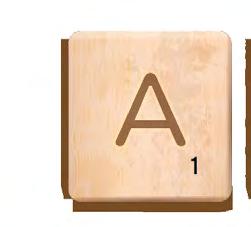




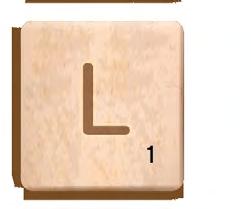

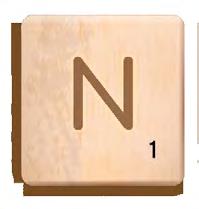

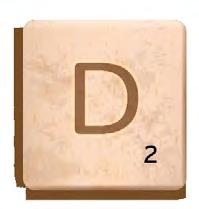


“Liora, take this!” Mommy pushed a plastic bag into my hands and handed Shaya to me, just before a nurse with a white bonnet rushed her through the double doors to a private emergency room.
Dini jumped onto one of the orange chairs. “Look, Liora!” She jumped off, as Shaya whined in my arms. I dug into the bag and pulled out a box of crackers. Shaya pushed the box aside and kicked his feet.
“Give him milk!” Dini called. She climbed onto a chair again and then jumped off. I stuck the bottle into Shaya’s mouth and tried to remember the words, any words, to a perek of Tehillim. But with Dini’s laughing and Shaya’s legs kicking like crazy, I couldn’t think of even one.
Please make Ari okay, Hashem. Please make sure Ari is fine, Hashem. Please, please, please.
Mommy didn’t know much. Just that a bone was probably broken. There had been blood under his eyes, and on his neck, and it had happened very fast.
I knew blood wasn’t good. I knew broken wasn’t good. And I knew that I was the one who had gotten him into this mess to begin with by teaching him to play basketball. How could this be happening, after I’d tried so hard to help Ari?
“Tatty!” Dini jumped off a chair again so fast, she crashed to the floor on her knees. But she didn’t pause for a second and ran straight to Tatty.
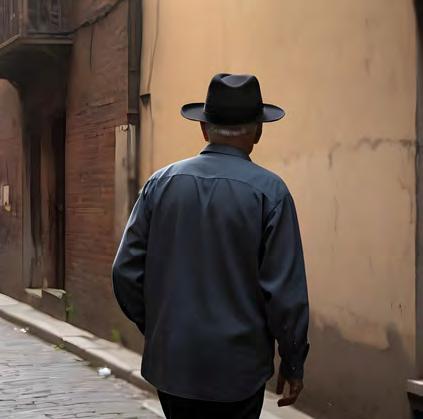


Recap: Liora tells her mother about the mishap with Zaidy returning to his old house. Liora then completes a game of Scrabble with Zaidy. Her mother calls to tell her that Yisroel Stern has taken Ari to the ER.
I let out my breath as Shaya threw his bottle to the floor and smiled, his big red cheeks shiny and wet. My father kissed me on the head. “How long has Mommy been back there?”
“Just a few minutes,” I said, though it seemed like forever. I looked up at him, and suddenly really big tears poured out of my eyes. I felt so funny crying right there in the waiting room, but I couldn’t help it.
Tatty squeezed my shoulder. “He’s going to be fine.” He handed me a tehillim from his pocket and walked over to the nurses’ station, but two ladies with their hair in green bonnets and wearing masks didn’t seem to notice him.
I flipped to my favorite, perek 16, and started to say the words as slowly as I could, like I meant them. Recently, Mrs. Landsberg had been trying to teach us about tefillah — that it’s a real conversation and Hashem is really there listening to every word. Most mornings in school though, I was too busy trying to wake up still, or I was checking out the girls’ hair accessories to think much about Hashem. But right now, in that room that smelled like detergent and peppermint gum and dirty socks, all I could think about was Hashem listening to my words. I wiped my nose on my shirt sleeve, and Dini came over and sat close to me.
I was so focused on the words that it took me a moment to realize that the phone that I heard ringing was Mommy’s. I fished it out of the plastic bag.
“Oh, Zaidy!”




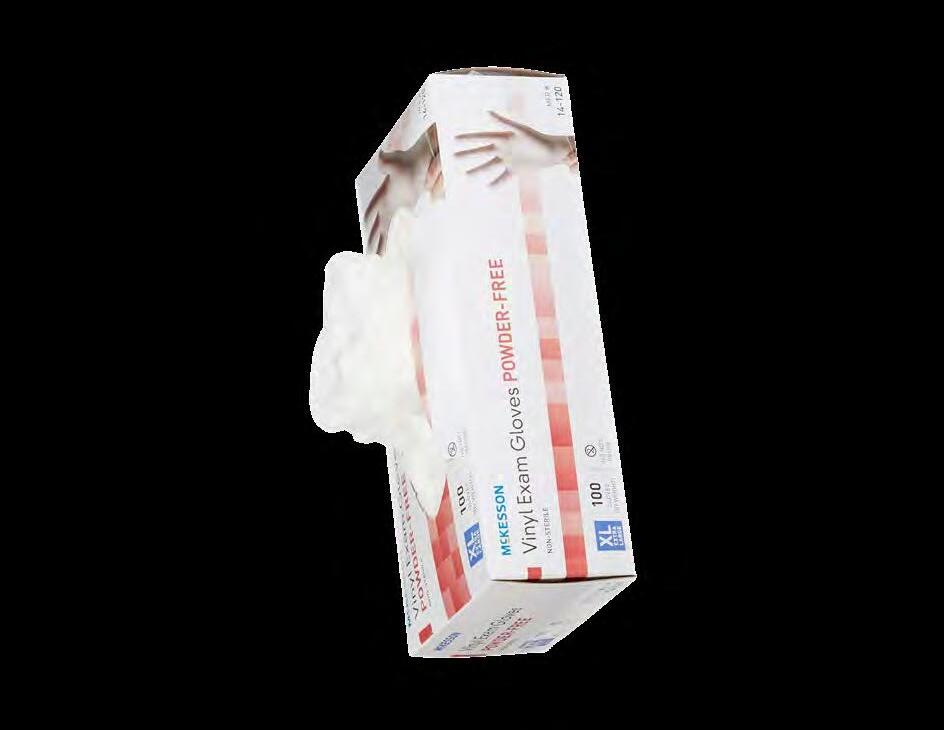











“Raizy?”


“No, it’s me, Liora.” Dini took the tehillim, opened it up, and her two ponytails flew back and forth with each shuckel.


“Please put your mother on, Liora. I need to speak to her about my trip.”
Zaidy West sounded different than usual, like he was mad or something, and the only time I remember seeing Zaidy mad was on motzei yom tov, when we heard about Hamas attacking the Yidden. Zaidy’s whole face had gone dark red then, and he’d made two fists out of his big hands and shook them hard. Then he’d gone outside to the porch to called someone, whom I’m guessing was Dr. Schneider, and we heard him yelling about the reshai’im.
“Um, she’s...” I looked over at Tatty. I wanted to give him the phone so that he could tell him, but he was talking to the nurse with the white bonnet. “We’re in the emergency room. Something happened to Ari.”
“What?! What happened to Aryeh?”
Dini continued rocking back and forth and flipping pages.
“I… I don’t know yet.”
Just then, the double doors opened, and Mr. Stern came out, holding Ari’s new sneakers. Right behind him was a tall, skinny man in a white coat with dark, thick hair. He held out his hand to Tatty. “Dr. Gilbert, it’s nice to meet you.”
“Please hold on, Zaidy,” I said.
Tatty gave the doctor’s hand a quick shake, then looked at Mr. Stern. He was so tall that even Tatty had to look up to him.
“Ari took a bad fall, Rabbi Bergenfeld.”
“How bad?”
“He has a fracture of his metatarsal in his right foot. Luckily, we’re almost certain he doesn’t need surgery, and we’re sending him for more comprehensive X-ray in a few minutes. It’s really the best break someone could ask for.”
“Liora? Hello, hello? What’s going on?” Zaidy said.
My father looked seriously at the doctor, and I saw him swallow hard before he spoke. “Doctor, Mr. Stern said there was blood by his eyes…?”
I held my breath and watched Dr. Gilbert’s face. He raised his eyebrows, then smiled.
“That’s because when he fell, he also broke these.” The doctor handed my father Ari’s glasses, or what was left of them, in a plastic bag. “Some glass cut his temple and below the eye, but luckily, nothing more.”
Tatty’s shoulders dropped down from his ears. He rubbed his
forehead, over and over and said, “Baruch Hashem.”
“Excuse me?” The doctor titled his head to the side.
“Liora! Give the phone to your father, right now!”
When the doctor walked away, Mr. Stern said, “Ari was actually doing quite well before this. He’d caught a challenging pass from his teammate, and was going in for a layup, when he and Doni collided. I’ve got to let Doni know he’s okay, he was very worried.” He took out his cell phone.
So much for sitting on the sidelines. Go, Ari!
I smiled at Mr. Stern’s lilting Australian accent and pictured him with a herd of sheep, singing in the wind as he guided them across the big, green field. Oh, well, it obviously was not bashert with Tovi.
“Rabbi Bergenfeld, I must say, I’m impressed. Ari knew just how to pass and dribble. He knows all the rules. He should have played with us long ago; I didn’t know he was so skilled.”
“Really?” I said. “But then why did he get hurt?”
Mr. Stern shrugged. “These things happen. Baruch Hashem, he’s young, he’ll heal quickly. And I expect him to play with us all the time, now.”
But he’d be stuck in a boot for at least six weeks.
“Hello, hello?” Zaidy’s voice called out.
“Sorry! Did you hear any of that? Ari is going to be okay, Zaidy, Baruch Hashem.”
“Well, of course he’s going to be okay. HaKadosh Baruch Hu always helps.”
My father slumped onto one of the chairs with Dini and Shaya in his lap. I handed him the phone. “It’s Zaidy.”

“Hi, Ta. Yes, Baruch Hashem. What about the trip? What’s wrong?” Tatty was quiet, listening to Zaidy for a couple of minutes; it was so loud I could hear his voice, but not the exact words.
Tatty shrugged. “I hear, but if that’s what Yoni said, and my wife, I guess it’s best. You don’t even have to speak to him, if you don’t want to.”

Tatty shook his head back and forth, then slowly closed the phone and handed it to me.
“Is everything okay?” I asked.
Tatty let out a long sigh and looked at me with sad eyes, then pushed a smile across his face. “I hope so,” he said. To be continued…











Look for open spaces, fill it up with a number from 1-9, but make sure that within what row, column, and sqaure that number doesnt exist yet. Keep filling those little squares; the more you fill in, the easier the puzzle is to finish! Remember that a number can only accur once in a row, column, or square!


Have a joke that cracks you up? Email your joke to Info@lakewoodvibes.com with ‘Funny jokes’ in the subject


















1. Har Gerizim and Har Eval are in the plain of _________?
2. The ma’aser cycle is every ____years?
4. Har Gerizim and Har Eval are opposite _________.
6. One may not add or _________ from the mitzvos in the Torah .
7. Which mountain were the blessings proclaimed upon?
8. What was proclaimed on Har Eval?
9. The blood of a korban is poured on the _________.
11. What were the Yidden instructed to smash?
12. The laws of an eved Ivri appear in this week's parashah and also in parashas _________.
14. Which non-kosher animal has split hooves and 2 humps?
15. Which part of an animal must be spilled to the ground when shechting to eat?
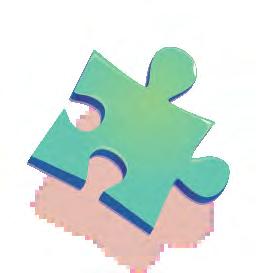
3. In this week’s haftarah we are told that _________ were used as the foundation of Yerushalayim.
5. Which long-necked animal is kosher?
10. The Yidden were instructed to _________ the asherim.
13. In the haftarah it says that jasper stones will be used for the __________ of the houses in Yerushalayim.
16. Which is the only city where one may bring a korban?
17. The blood of an animal is likened to its ________.
18. If ma’aser sheini on produce is too large to transport it can be transferred onto a _________.
19. The Torah specifically tells us that this animal may not be cooked in its mothers milk.
20. The Yarden is on the _____ side of Har Evel?
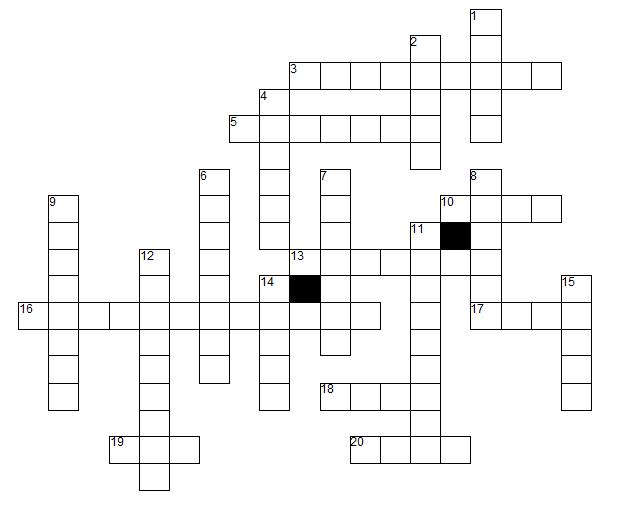










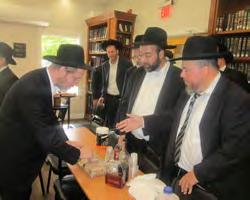



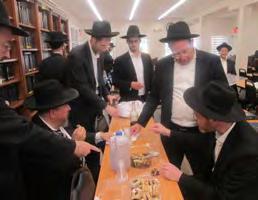

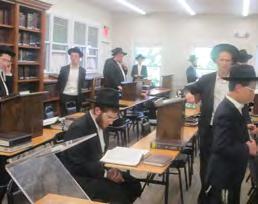
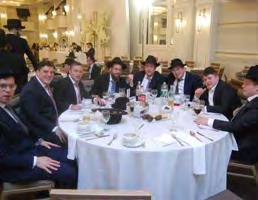

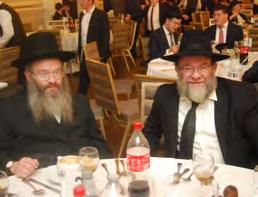
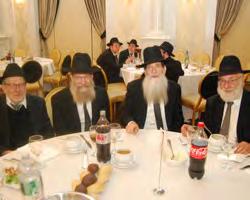
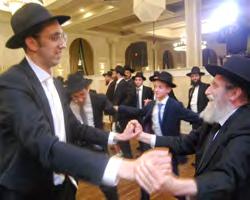
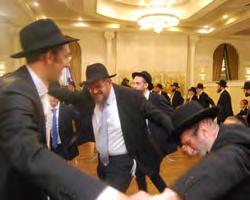



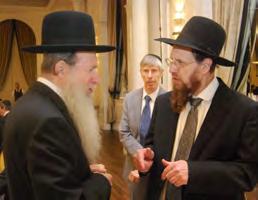
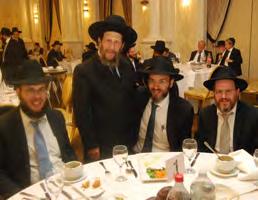
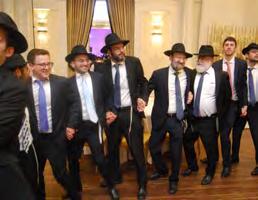



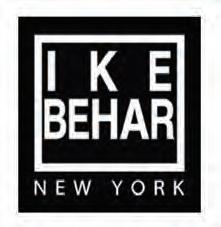






Dear Vibes,
I wanted to write about something which I find helpful, and that is the many “groups” that exist these days to help with nearly everything. Technology is certainly a danger, and it’s important that groups be used only in moderation and within the correct framework (email, for parnassah etc.), but even/especially within the correct framework, there is so much chessed that exists. There are groups that help tzedakah campaigns take off the ground, groups that help mothers, groups that help the general community… Recently, I asked where I could purchase a certain item and within moments received a response.
Of course, all ease comes with a price, but I definitely think it’s worth our while to take a moment every now and then to be grateful for the generation of ease that we’ve been born into and to contemplate the great chassadim that are being done all the time.

- Anonymous
Dear Gratitude Column,
A while ago you printed a parashah column written by Leora Gruen which I thoroughly enjoyed. I’m writing now because as someone

who benefited from Leora’s coaching classes for working women, there’s a tip t I learned from her that I wanted to share.
The tip is called the Five-Minute tip and it goes like this: If someone asks you to do something (within your field of expertise) for free, and you know that it’ll only take you five minutes to do it, do it and do it happily.
The idea behind this is that our profession reflects Hashem’s ratzon for us and we’re meant to make a kiddush Hashem wherever we are, and with whatever circumstances we’re blessed with.
In addition, a person never loses out from doing a favor for another. Workers need to charge for their time, but when someone asks for a favor that won’t take long (five minutes is not a lot of time!) then grab the opportunity as a mitzvah, you never know where it will take you.
I’ve applied this tip to my profession numerous times and in addition to the number of mitzovs it’s enabled me to perform, it’s also almost always led to more work that I’ve been paid for.
The Five-Minute Tip is a tip I’m grateful to have learned and I thought that I’d share it here. Keep up the great work!
- L.Y.
In Vibes of Gratitude we are proud to showcase acts of chessed in our community.
To submit your own story of thanks to anyone from drivers, to grocers to your next door neighbors, please send an email to editor@lakeweoodvibes.com
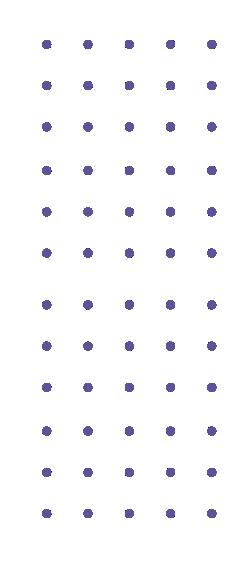









We were in our van on sunday on the way to the farm. While we were driving we passed a lake with paddle boats and row boats and it looked like so much fun. Our mother asked us if we should do boating instead of our original plans. We werent sure what to do and kept arguing back and forth between boating and farm. Some of my siblings really wanted to go to the farm but the boating looked like tons of fun. My mother decided to just go to the farm like we planned. When we got to the farm we saw a lake in middle of the farm with paddle boats and row boats! It was hashgacha pratis that we chose the farm because we ended up getting both trips in 1! All of us had so much fun feeding and petting the animals and then going row boating in the lake.
Heshy Gross, 10

When I was younger, I earned a doll. It cost almost fifty dollars. I was very excited about it. We went to the toy store to buy it. When we went, it was more crowded than usual. Once we were there, we realized that there was a sale and everything was 30% off. It was such Hashgacha Pratis that we ended up going on that Sunday. We were able to get more clothing with the doll.
Reena Cohen, 9


One day about two years ago I was heating up a pot of water and there was a piece of paper sticking out a little and when I turned on the flame for the stove and all of the sudden i saw smoke coming out of the side of the pot so i quickly moved the pot aside and I saw a fire started on the paper and before I could do anything the water splashed out of the pot and put out the fire.what hashgacha pratis!
M.F. ,12

Kids,









The birds and many of the mammals forbidden by the Torah are predators, while the permitted animals are not. We are commanded not to eat those animals possessive of a cruel nature so that we should not absorb these qualities into ourselves.
You ate way too many carrots. Do you know what would happen? Your skin would turn a bit orange! Or imagine you listened to a song again and again and again. What do you think would happen? The song would get stuck in your head for a while! Or imagine you sat down to read a book and got lost in the story. You almost feel like you are in the story because it is so absorbing.
BRING IT HOME
What is one way you can be more careful with the Kosher food you eat?
Let’s talk more about food for a moment. We are what we eat, not only physically, but also spiritually. And this is exactly what the Torah has in mind when it tells us to keep away from certain foods. For example, in this Parsha the Torah tells us not to eat birds of prey (for example, a vulture) because they are cruel animals that prey on other animals. The Torah doesn’t want us to digest something that has a cruel nature, because that cruelty can be passed on to us just by eating it! We can also apply this lesson to other things we take in, through our other senses. What we see & what we hear affects us more than we may realize. For example, when we listen to a song, read a book, or watch a video, the images and messages go into our minds and psyches and affect the way we think and see life. For this reason, it’s important to be intentional about what influences we allow into ourselves.


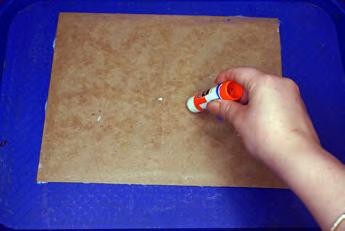
Glue the printed bird template to the card board using glue stick,and cut off the excess.

Now apply liquid glue to each part of the picture and stick the grains according to the numbers.
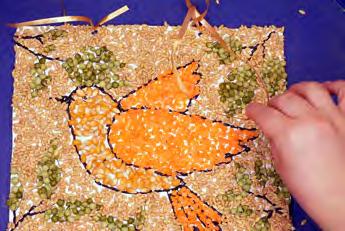
When dry put a ribbon in the holes and tie.

Punch 2 holes on top of the cardboard.

1. red lentils, 2. popcorn, 3. black rice, 4. green lentils, 5. wheat kernels. Shake off the excess grain when finished with each number.
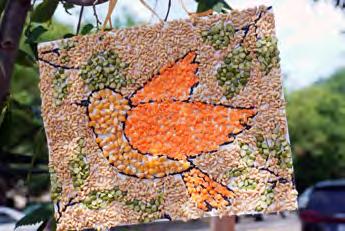
Your bird feeder is ready! Now put it outside and see the birds peck at the Mosaic Bird Feeder!

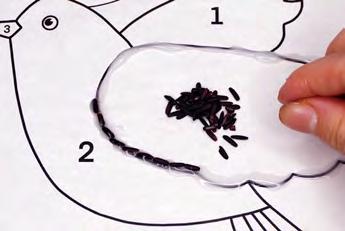
Apply liquid glue to the borders of the bird’s wings and place black rice grains in a line where the glue is applied. Repeat for all borders.
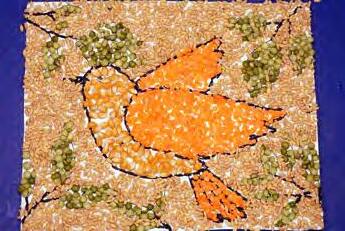
When the whole picture is ready, put 4 heavy objects on each corner of the picture so it doesn’t curve while drying.
Elmer’s Glue Stick and Liquid Glue
Printed Bird Template
Cardboard (8.5x11)
Popcorn Kernels
Wheat Kernels
Green Lentils
Red Lentils
Black Rice
Scissors
Ribbon

*We would love to see how your Parsha Studio Project came out!
Send us pictures to, info@jcm.museum

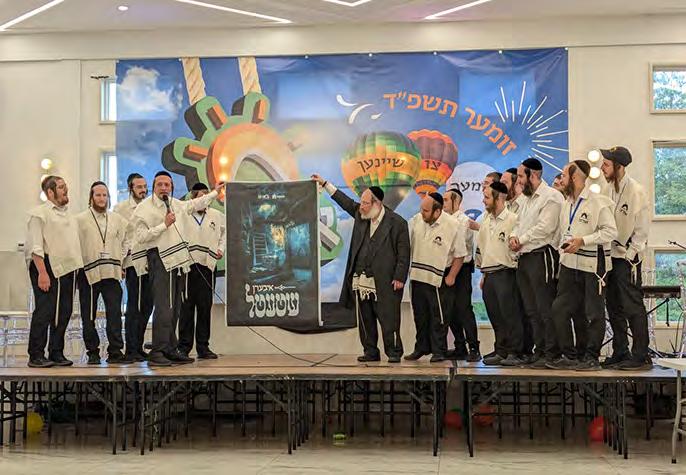
Catskill - Tenoim for Daughter of the Sanz Zvehill Rebbe.



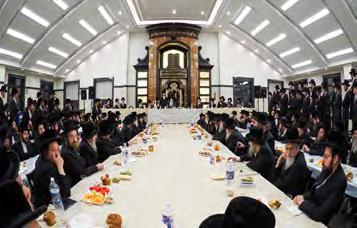
Toldos Ahron Rebbe davening at the Shul in Liska, Hungary



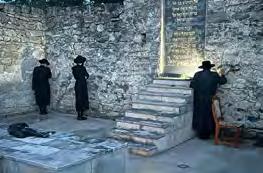

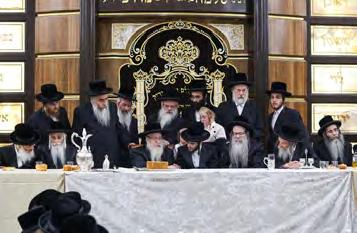
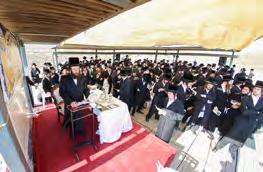
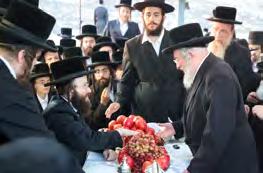
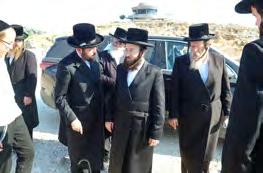







There are all kinds of grandparents.
As a child, I learned pretty quickly that my European Holocaust-survivor grandparents were very different from my American-born grandparents. They had different personalities, different priorities, and different styles of reprimanding us when we didn’t visit often enough or fought over the last Stella D’oro breadstick.
As I grew older and met my friends’ Bubbies and Zeidies, as well as friends of my Bubbies and Zeidies, the variety of grandparents I became acquainted with stretched beyond my heretofore grandparental horizon. Gosh, I wondered, older people sure come in different styles!
Some grandkids have to invest herculean efforts into finding relatable conversation during their Erev Shabbos phone calls, while others wonder where the time has flown after they hang up the phone half an hour later. Some grandchildren look forward to a shopping expedition with their Bubby, while others (forgive me!) dread it.
But there are some things that (almost) all grandparents have in common. Nope, it’s not their colorful taste in furniture nor even their unquenchable thirst for news. It’s not their coiffed sheitels nor their personalized seat in shul. It’s not even the looming container of herring in cream sauce that perpetually graces the top shelf of their fridges.
It’s something else.
It’s the words that grandparents hear from their grandchildren that draw their lips upward into a wrinkle-happy grin, and cause their eyes to glass over with delight. It’s those words that cause their minds to race with the tenacity of an Olympic swimmer while sifting through mental rolodexes while wonder whom to share those special words with first.
Below is a list of understated, sometimes unintentional, statements that will temporarily whisk a grandparent’s heart off to the Nachas-Netherlands. The list is in reverse order. From adorably precocious to “There’s Nothing Like this Nachas moment.”
So, Grandkids, read closely. Here’s your chance to have your photo displayed right in the center of the mantel at Bubby’s house…
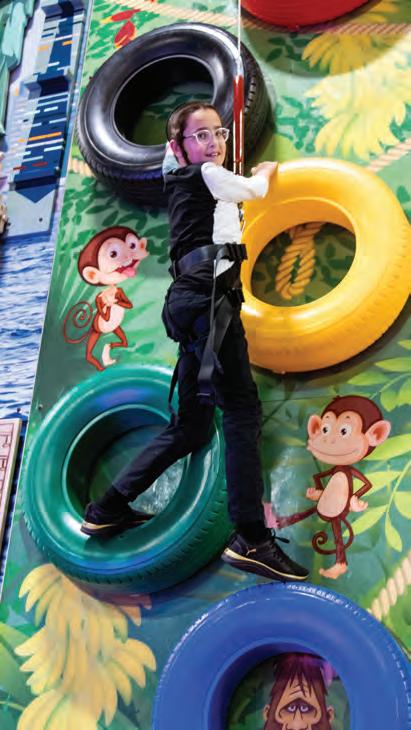

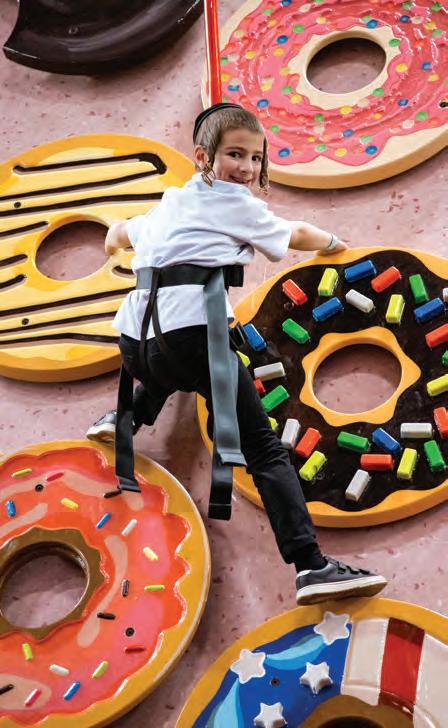


Be it a recipe for cinnamon-raisin rugelach, banana cake or apple kugel — anything will do, so long as your grandparents made it! Make your Bubby or Zeidy feel like a world-renowned chef with this question, and gain a yummy recipe at the same time! For extra points, go to your grandparents’ kitchen and take notes as they teach you their techniques. Win-win situation.
When your grandparents downsize, they’ll be on a zealous quest for familial recipients of the antique treasures they no longer have room to store. Be it a beaded necklace from Great-Aunt Zelda, or a lamp in the shape of a willow-tree that your alte-Zeidy scrimped and saved all month to buy, these treasures are yours to keep. And keep you must, if you want your number to maintain its speed-dial status in your grandparents contacts!
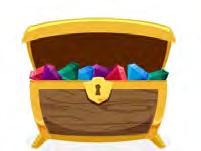

No doubt, you’ll walk away a winner after this conversation. Not only will you uncover family secrets — like that Raizel wasn’t her real sister and the alte-Zeidy and Bubby actually came from Belarus , you’ll also score some brownie points with Bubby/ Zeidy when you allow them to share their priceless memories with you, their #1 grandchild!


I.e. I haven’t spoken to them in ages! In other words, I’m too busy schmoozing with you that I yet get a chance to call them!
It’s here that your Bubby will say, “Oh, dear! You’d better go call your other Bubby – and please send her my best regards!” But then she’ll keep you on the phone for another ten minutes, hoping to hear that beloved phrase again. From you, the #1 Grandchild who has deep respect for both sides.
No matter the answer, this is a phrase your grandparents definitely want to hear it. It means you like their cooking, their company and their furniture.
6. I sent out all the thank-you cards yesterday.


Yes, you can tell cousin Beatrice that I received her gift, and that her thank-you card is in the mail. And the thank you cards to the neighbors, too. Of course, I love the fauxsapphire earrings they bought for my bas mitzvah. I’ll wear it uh…sometime. Also, by the way, Moishy’s upsherin is coming up next week. He likes fire trucks.
5. Guess what? I’m valedictorian!
This is the moment you’ve been waiting for. Yeah, I know it skipped a generation and you were valedictorian too.
Obviously, what will follow is hearing all about your celebrity status in the news, seeing it in the local advertisement paper, and on the shul bulletin. You’ll politely thank total strangers that stop you in the street to wish you a hearty Mazel Tov—as they heard all about it from your proud grandparents.
This is a question for the secret tip to keeping pots silver, geraniums blooming, and teeth real. It doesn’t matter what topic you’re seeking advice for, so long as it’s them you’re asking advice from. Because, truth be told, grandparents do have good tips to share- even if it














3. Wanna go shopping together?
Nothing will tell your grandparents, ‘I love you’ like an invitation to go on a shopping expedition together with you. Especially if you’re a teenager; then wow have you scored big points.
To the grandparents reading this, I say—I know! Being invited by a teenage grandchild to be seen with them in public is a tremendous feat. If you’ve reached that pinnacle, then you’ve earned the bragging rights that go along with it. And if not, well, just don a designer bag, and more importantly place a hefty wallet . You’ll get that invitation in no time!
Grandkid Extra Credit: Tell Bubby and Zeidy they can leave their wallets at home!

2. We named her after your mother, of course!
Word to the Wise: Marrying someone with the same names in their lineage is a sure way to keep everyone pleased.
1. I’m engaged! To your best friend’s grandson!
Yeah, you were the first to mention the idea. He’s learning full time but, he’s also a doctor!
And, best of all, we’ll be your next-door neighbors! I know, you were right all along!

There you have it, grandkids! No matter where your grandparents come from, or how different they are from your friends’, these words are likely to melt their hearts faster than the chocolate gelt they give you on Chanukah. More powerful than national news, more groundbreaking than shul politics, the phrases above are guaranteed to draw positive attention from your grandparents and catapult you to the position of Grandchild of the Year at an sward ceremony better known as a shul kiddush.



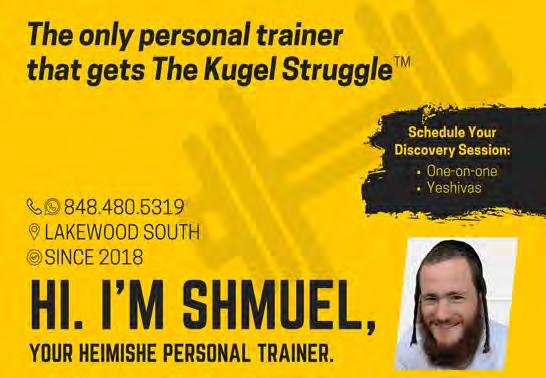







The Indian Peafowl is a large bird with eye catching hues, feathers, and design, all powerful witnesses to the Great Creator of our universe.
People commonly refer to this majestic bird as a Peacock. However, in truth, it is clearly delineated: The family in general is called Peafowl; the male (which has the stunning feathers) is called Peacock; and the female (that doesn’t have the beautiful feathers) is named Peahen.
They originate in India and are today widely spread over many areas in the world.







The Indian peafowl lives primarily on the ground in open fields and forests.
Like most birds, the peafowl build their nests in the beginning of the summer, so that the chicks can survive. The nest is a simple hole in the ground - and rarely even on buildings - insulated with leaves, twigs and random objects. The mother will lay 4-8 eggs, on which she will sit for 28 days. When the chicks hatch they will trail after the mother, following her every footstep. Many times the chicks climb onto the mommy’s back and she will fly up to a branch to keep safe.
Every evening they gather in large groups - sometimes even counting up to 100 - fly up on trees and chirp and sing in unison… the sound travels very far. When they are in danger they will ascend on a nearby tree. All this notwithstanding, leopards, wild dogs, mongoose, and above all tigers, will capture many of them. Many times certain large eagles will also feast on them.










The Indian peafowl is also called ‘Blue Peafowl’ for the blue color of their head and neck (the female heads are only slightly colored blue and their necks are also greensee top right). On the tip of their head is a crown comprised of 20 empty feathers finishing off with a flag-like edge (see top left). The male’s ‘flags’ are a brilliant blue, however the female’s are light green.
The males dazzling design is due to the long colored feathers - more than 200! - which lie on top of his tail. The feathers are artistically designed dotted with many ‘eyes’. The female doesn’t have the long feathers at all and her body is a light brown. Only her neck and head have some color (see pictures). Even the male won’t expand his feathers all the time, only when he’s out to show off. There are many peafowl that are completely white (see picture below).
Peafowl are omnivores, meaning they consume vegetation and also meat. They will eat whatever they find: seeds, insects, fruit, berries, grasshoppers, snakes and other small animals. They will, however, stay away from large snakes and won’t start up with them.



















1. 2 stunning male Indian peafowl strolling on a roof in India.
2. An Indian peafowl, only 1 day old, being held by a man that raises them.
3. Instead of bathing in water, the Indian peafowl will cleanse his body by rubbing on dry sand.
4. A male Indian peafowl cleaning his eye catching feathers with his sharp beak.
5. A young Indian peafowl pulling a worm from the earth to eat.
6. A mommy Indian Peafowl and her chicks.


Habitat: Originally India, today in many areas
Weight: male 8.8-13.2 lbs.; female 6.1-8.8 lbs.
Length: male 39-45 inches; female 37 inches
Length of male including tail: 6-7.5 feet
Eggs: 4-8 at a time
Food: seeds, fruit, insects, snakes and small animals
Predators: leopards, wild dogs, mongoose and tigers
Lifespan: up to 20 years
Population: over 100,000






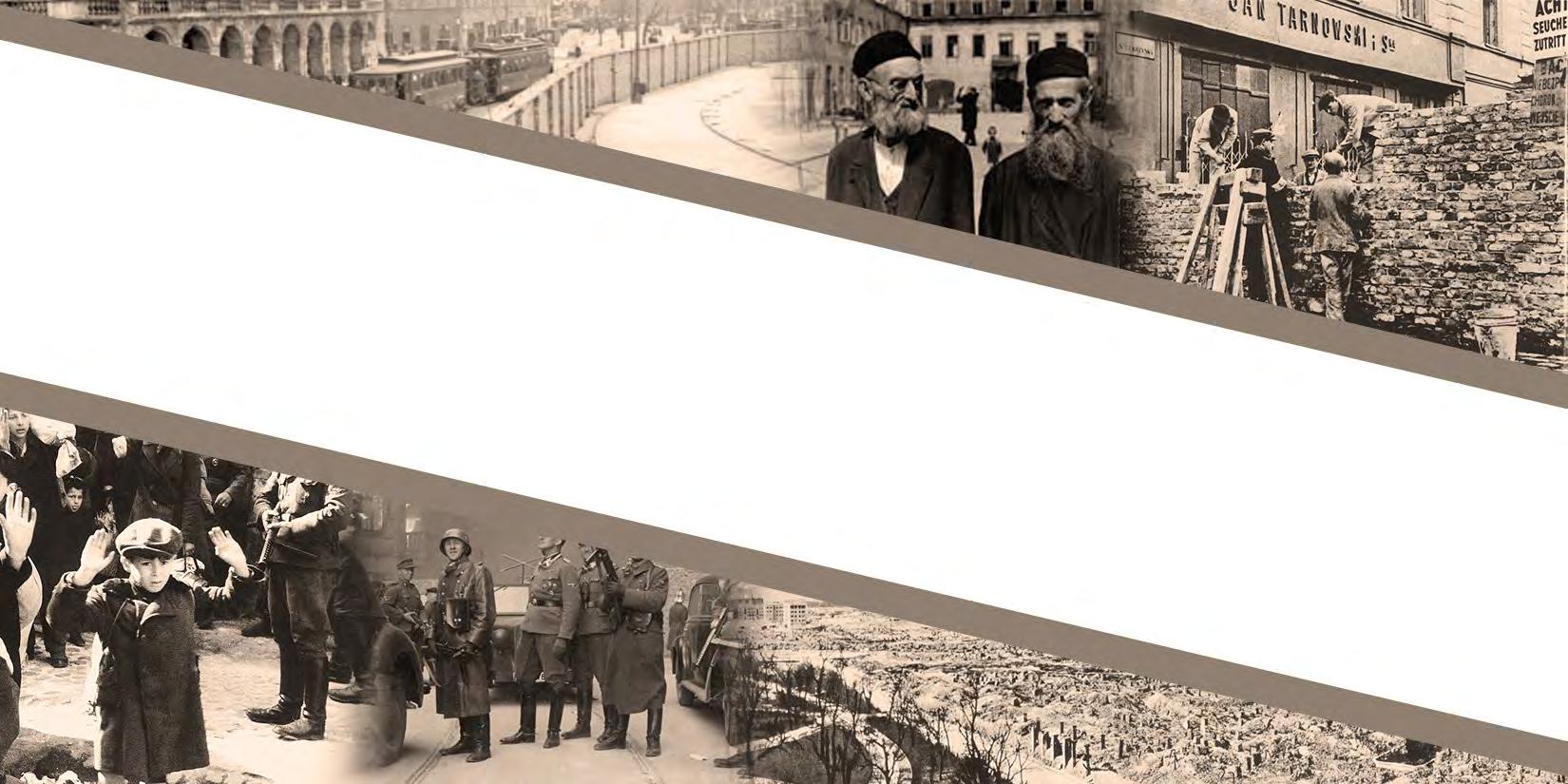







1 1/2 cups Purple Cabbage (thinly sliced)
1 Red Bell Pepper (thinly sliced)
1 Carrot (medium, grated)
2 stalks Green Onion (thinly sliced)
1 Mango (small, chopped)
3 tbsps Water
2 tbsps Apple Cider Vinegar
1 Garlic (clove, small, minced)
1/2 tsp Red Pepper Flakes
1/8 tsp Sea Salt
1 head Romaine Hearts
2 Avocado (diced)
2 tsps Sesame Seeds
1/4 cup fresh Cilantro
In a large mixing bowl combine the cabbage, bell pepper, carrot and green onions. Toss to combine and set aside.
Add the mango, water, apple cider vinegar, garlic, red pepper flakes and sea salt to a food processor and blend until smooth.
To assemble the lettuce wraps, divide the cabbage mixture between the romaine leaves and garnish with avocado, sesame seeds, cilantro and spicy mango dressing. Serve immediately and enjoy!


















A timeless collection of unique silver Judaica masterpieces by Ben Shirall London
• Designed and handcrafted in England renowned globally for its silver and goldsmiths.
• For discerning investors and collectors.
• Exquisite Judaica items to enhance your home.
• Also accepting custom commissions to order.

The Forefathers Collection Etrog Box Model: Engraved
We will be visiting the US next week Please call or email to arrange an appointment
Aaron H Deblinger
Hosiery Plus is now open at Toms River Plaza

Mon - Thurs: 10 AM - 6 PM, Fri: 10 AM - 2 PM
2084 Lakewood Rd, Unit 6A











• Building Wealth
• Securing Passive Income
• Reaching Financial Freedom

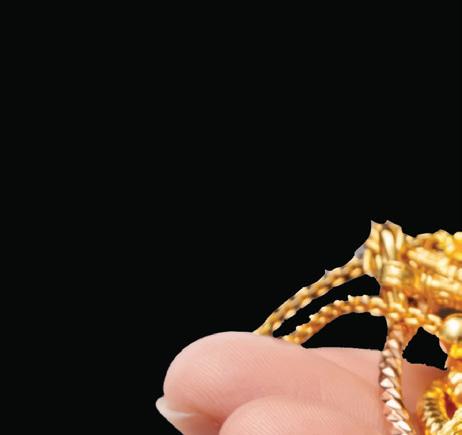
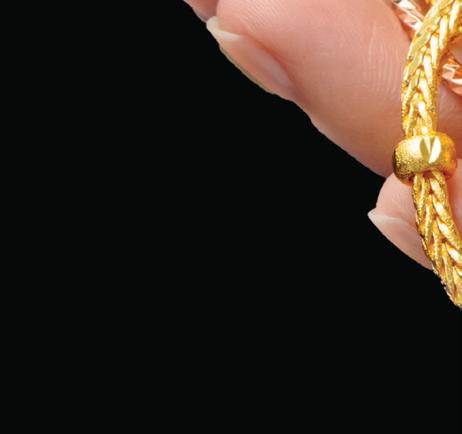
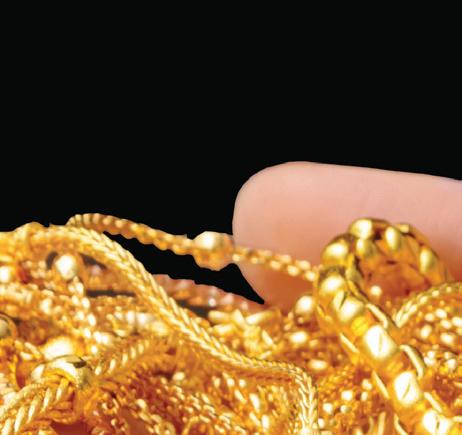




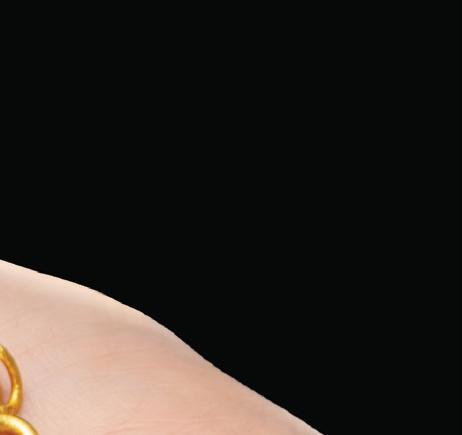
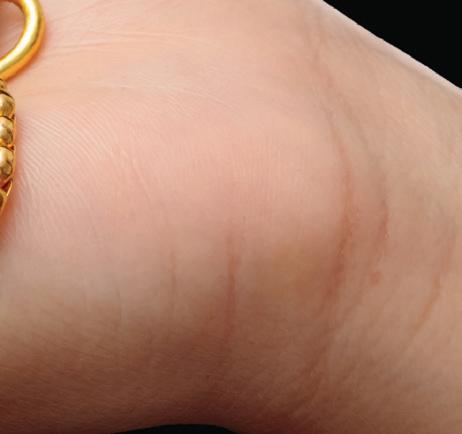








Note: If your vehicle has been picked up by any other towing company, we’ll bring it to our shop at no cost to you.






















Apt for Rent
brand new above ground room, separate entrance and bathroom suitable for office or playgroup plenty of parking, nice yard please call or text 9087838073
Brand new above ground space for rent. Suitable for a playgroup or office. Private with big backyard. Lo cated at South lake- Central Ave area. For more info please call 848-525-6201.
Quality Bookshelves, 38 years in the business, very low rent, Lakewood South - Tel 718.974.0505
Attention women! Create a successful retail business from the comfort of your home! Help others while earning an income. Full training and support. No risk Lve msg or txt 845-579-2069
WORK FROM HOME
Great opportunity to manage your own business from home.
No exp. needed, no computer nec Huge potential to grow big. Call: 438.529.1216
Looking for a yiddish speaking girl as a playgroup assistant for a stamford meadows playgroup. please call Laya 848-245-6318
Customer Service Manager
Children’s fashion company in Howell,NJ seeking experienced customer service manager. F/T or P/T in house $35-$45 hourly, great benefits!
Leah@swiftstaffinggroup.com
Excellent opportunity! Nursery morah and assis -
tant positions available in chassidishe cheider for the upcoming ’24- ’25 school year. Amazing support and environment. Call for details: 347-743-3099
Fantastic Job opportunity!
Work from home, create hours, loads of training & support, great profit & growth opportunity, no computer needed! For info Text “MONEY” to (732)655-9565 (or call). You’re a step closer to having extra income!
OLIVIA JEWELRY RENTAL
Gorgeous selection of fine costume jewelery for your simcha or special occasion. $25 for the first piece and $15 for each additional piece. Located in prospect square 35 lewin ave. Contact 773-503-9132
Weight loss products: Amazing weight loss product will help you look good and feel good! The results speak for itself, safe and healthy. Call Esty Meyer 732-806-0895.
Summer/ Camp Essential : Natural toothpaste (Fluoride free), deodorant (aluminum free), shampoo, conditioner, sunscreen, aloe gelly for burns , and more. Please call: 732-806-1324
12 Brand new Italian chairs in box, very washable, beige suede, orig. $575, selling for $400 per chair, call 848-448-7513
Eczema
Heal without cortisone. Remarkable results. 732.597.2835
Selling 6 months subscription to the Lakewood gym text 848-245-2018
Brand new LG Classic flip phone, tracfone locked Only 150.00! Call/Text 240903-1456
Selling 2 bnos Hadassah jumpers at reduced rate.
Size 5, Brand new with tags 732 597 2835.
Selling ELAL credit. 732 597 2835
Selling 1 Brand new Bais Faiga uniform shirt Size 14 at reduced rate 732 597 2835
Razor E-bike for sale. Brand new. Excellent price $135. Please text 732-232-7167
Gorgeous pink gowns for sale, little girls size 8, 6 and 2.
Call/text 848-226-0319
Keyboard For Sale: Korg PA 600 brand new Great price. Call/Text: 848986-3401
Beautiful orig. hand painted Bookmarks & Cards starting at $6 ea. Sept. 1, Esther Gerber Hall, 590 Madison Ave. 11-4. Lots of other merch. for sale at grt prices!
Selling Black Doona with base in great condition for $300. Call only: 732-691-3165.
Selling brand new stroller similar to the city mini $150. Text 848-224-3301
Looking to sell Knox Gear KN-PAS02 15” Active Speaker Combo Set, $100. Please call 732-534-1094
Adorable five months old bunny for sale , with cage and food $100 Call or text 848-480-5307
$100 Linen Gardens gift card for $85. Text 848-226-9020
Keyboard stand for sale:
Selling z-style Keyboard stand For $40 OBO, Call: 508.292.8589
E-bike for sale:
Selling KISTP e-bike Max speed 18mph mSelling for $225 OBO. Call: 508.292.8589
STUNNING GOWN:
Custom ivory gown size 4/6. Pls call/ txt 848.226.9204
Canon sx 620 hs, almost new condition. text for more details 908-417-0549
$500 gift card to Fino custom, selling for $485 call only 7322282103
Beautiful white lace sis of the bride gown rent/sale. Size 2 with room to let out. Price negotiable. Text 347-962-9419 for picture.
2 stunning matching simcha dresses for girls, sizes 8 (short) and 16 (long), soft peach/cream color. Call or text 848-222-9688.
Selling a master bedroom furniture in great condition, call or text 347-569-1053
Designer, show stopping cream and floral embroidered gown for sale. Ladies or teens size eight. Please call 732-331-6588
selling black 2010 honda civic w/150k miles drives great, easily makes trip from lkwd to NY AC is great, asking $5,995 (neg.) call/text 3478487204
BEAUTIFUL SPARKLING POOL WITH GAZEBO
Serene setting. Large, gets great sun. Pristine. Minutes from Gourmet Glatt North. $40/hr wkdy $50/hr wknd. Call/txt 973-986-9592
Explore a World of Wellness and Beauty.
Acne scars or damaged facial skin? Join 100s of customers who have been helped with our natural award winning products! Call/text to hear about it and make your purchase today. 732.608.1799
Professional seamstress is available for all your alteration needs. Call/ text 848-525-6619. Now offering embroidery service!
Alterations
hems, mending, near Oak and Vine 732-367-6418
ostpartum?
Struggling with low milk supply, soreness, thin hair, stitches/or cramps, etc?
Natural and effective solutions at affordable prices. Call 848-2074889 for details
Female Lifeguard Available
One time or steady. Many years of experience, call or text 732-961-0395
MR WERTZ’BERGER’S RENTALS
We rent out wireless Wifi, Laptops, Clarinets, Violins. Prices are between $13-$25 per week.
Clarinet & Violin come with free MP3 lessons in English or Yiddish.
We also offer private keyboard lessons on phone. Call Hotline 718-435-1923
CHILDHOOD TRAUMA?
Discover What Has Already Helped Thousands of Women Release Trauma, Stress and Anxiety Rooted in Unprocessed Childhood Emotions.
FREE MASTERCLASS
One week only! Aug. 19-25. https://www.rapidrecoverycoaching.com, or call 646-558-2080
CUSTOM PHOTO ALBUMS
Specializing in Custom Photo Albums, Chosson, Wedding, etc.
professional Photo Editing, many years of exp. Special rate for photographers. Photo Dreams 347.563.5153
PHOTO EDITING
Professional photo editing, many years of experience. Special rates for photographers. Also specializing in Custom photo albums Chosson, wedding, etc. Photo Dreams 347.563.5153
ez ride transport: Airports, nyc, upstate. Luxury suv.
Reasonable prices. Call/text 848-251-4736
DON’T WASTE YOUR MONEY!
Get a 20-30% discount on your electric bill! 100% FREE & easy to signup! text 845-600-0430
FUN SCHOOL
Girls ages Primary 1st, 2nd & 3rd grade - From Aug 26th to Aug 30th - 10am to 2:30pm - 74 Birch St Call Leah Cohen 732 905 0869 - $75 for the week
ALLERGY FRIENDLY
babysitting
New!! Chestnut Area Call 347-760-7134
Heimishe woman looking to be a mother’s helper, light housework, cooking, laundry, mending, child care, etc. 6-8 hrs a week, afternoons, pref in South Lakewood. 732367-6418
Night babysitting mature exp. bubby, own transp, from 6PM-2AM south Lkwd, preferred 732-367-6428
Day & Evening Babysitting
Possibly in your House also - 732-367-5369
PLAYGROUP
FEW SLOTS LEFT!! 16-24
months 9:15-3:00 Fridays until 12 *optional extended hours* located in Sunset Grove (off prospect and James) Many happy references! To register Call/ text Sara A. @848-299-6264
Lost and Found
Found
girls/ladies gold bracelet in West Gate about two months ago. Please call or text 732-
330-3590.
Lost
duffle bag on the rockshire 7pm van Sunday Aug 18 from lkwd to monsey. If found please call 845-642-5487
Book library-adult & children’s english book library. Over 1,000 books. Located near Segull Square plaza. Call /text(848) 525-5909.
New tznius hospital gowns in Oak and Vine. Please call: 347-486-2994 or 347-6336329
Vort Dress Gemach
If you have a perfect condition Simcha dress that you would like others to benefit from, please call/text (848) 245-2633.
The Pickup Gmach-Picking up your current last season’s kids clothing in good condition and passing it on to local Lakewood families who appreciate it and wear it right. We keep outfits and matching together as sets. For pickups email pickupgmach@gmail.com
Deja New Clothing Home Pickups. We pickup your excellent clothing so others can enjoy them Text ‘pickup’ to 732-702-3352.
Huge buckets of lego and duplo for shabbos simcha. 732 370-2572 to reserve
New tznius hospital gown gemach in Oak and Vine. At no cost. Please call: 347486-2994 or 347-633-6329
Speaker System for Small Events (with mic) 7320-510-3917 call/text Jackson, Bates Area
Gemach Zichron Feige
Stunning childrens gownsmatching collection from sizes 9 months untill size 18 for appt call 908-461-0058
If you have up-to-date, beautiful childrens gowns in all sizes you’d like to donate to our gemach please call 908-461-0058
Gemach zichron Gittel ladies gown gemach. Beautiful gowns size 0-20 (732) 908-8263
Gemach Zichron Naftali jewish dvd gemach/challenging times.
Men/women/kid dvds -2 week, provide dvd player/9176281785
Simcha Toy Gemach
Keep children busy, happy so the adults can enjoy the Simcha!
Borrow toys for yourSimcha, 732-730-9127 notext Email:GemachNefeshChaya@gmail.com
Bris set Gemach for your simcha: Poya, pillow, beautiful outfit with accessories. please call 732-994-5887
BRIS PILLOW/OUTFIT GMACH: 848-245-3347
Giveaway
Free items available for anyone with low vision. Contact NAHORA. Fortune@Nahora. org, 917-968-5828 or Abie@ Nahora.org, 718-986-9602.
